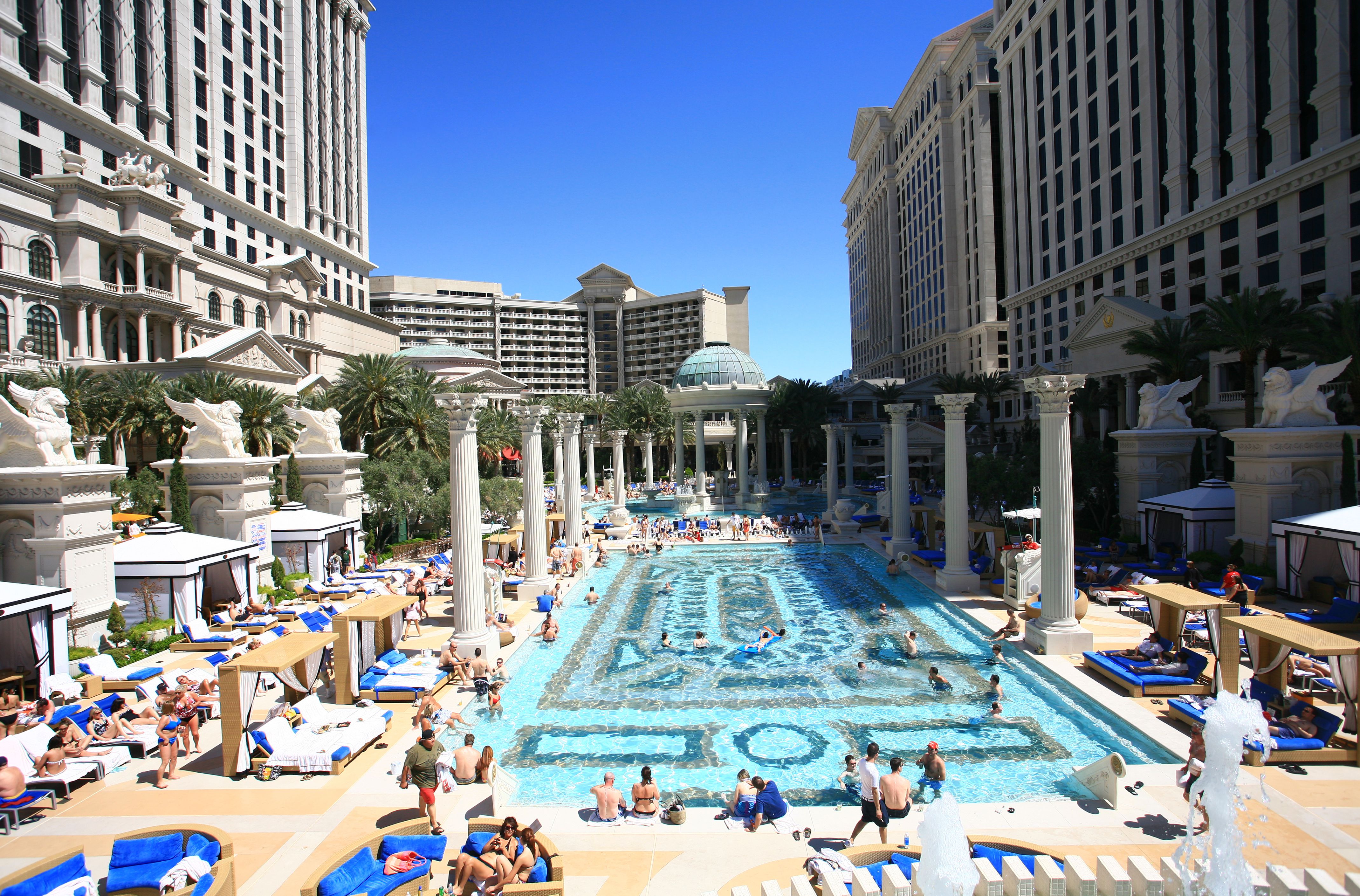10 Ways to Enjoy Pools and Beaches While Staying Safe From COVID-19
28th September 2020
6 min. read
1452

If you’ve been desperately waiting to dip your toes into the water (we know we have), then we have some good news: visiting your favorite pools and beaches this summer is still doable, according to the CDC, as long as you abide by these safety measures. If you’ve been itching to get your feet wet, here are some ways to quench your swim craving without compromising your safety.
1. Stay six feet away from each other, even while you’re in the water.
“Experts generally agree that swimming in pools is safe because chlorine and bromine kill COVID-19,” says Aimee Ferraro, PhD, senior core faculty at Walden University’s Master of Public Health. Although there is no evidence stating that COVID-19 can spread through recreational water, it’s still possible for it to spread in other ways, such as when swimmers come up for air or touch communal surfaces. If it’s not possible to stay six feet apart from others while in and out of the water, the Centers for Disease Control and Prevention (CDC) advises choosing a different, less-crowded location.
2. Opt for swimming at a local pool or beach to reduce unnecessary travel.
The CDC advises against unnecessary travel during the pandemic, “as travel may require you to stop along the way or be in close contact with others with whom you may not otherwise have contact.” Opting for spending the day at a local pool or beach can help reduce the risk of contracting and spreading the virus. When deciding where to go, Dr. Ferraro suggests choosing an outdoor, private pool rather than an indoor, public pool, if possible.
3. Don’t be afraid to overpack.
You’ll need to pack your bags with more than just sunscreen and towels this summer. In addition to your basic beach essentials, be sure to pack extra hand sanitizer, especially if you can’t use a public restroom to wash your hands, extra masks (the CDC suggests bringing two per person, in case one gets wet), and extra drinking water, since it’s likely that public water fountains will be off-limits.
4. Wear a mask while you’re moving around, but not while you’re swimming.
Without a mask, viral particles can easily spread from person-to-person. It’s very important to “consider the higher risk in crowded areas, including bathrooms, locker rooms, and restaurants,” says Dr. Ferraro. Swimming with a mask on, however, is ill-advised: “People should not wear cloth face coverings while engaged in activities that may cause the cloth face covering to become wet,” says the CDC. “A wet cloth face covering may make it difficult to breathe.” If you’re wondering where everyone else is getting their masks from, check out which masks are the most popular on Amazon.
5. Look up specific rules put in place for your swimming destination before you go.
Most beaches and pools have implemented regulations to avoid the spread of the virus. For instance, at the beach, public restroom use might be limited, picnic areas may be unavailable, tents could be prohibited, and water fountains will likely be off-limits.
For those visiting public pools, the regulations might be even tighter due to a more confined space. The YMCA, for example, conducts temperature checks, requires one-hour pool reservations, and is not allowing hot tub, sauna, and steam room use, according to Amelia Baker, chief marketing officer for YMCA of South Hampton Roads.
Not to mention, each state has different laws regarding what you can and can’t do at the beach and at public pools. “Beachgoers in Connecticut are required to stay [about 15 feet] away from each other,” says Finn Cardiff, founder of Beachgoer. “You may also find it difficult to get into beach entrances in New Jersey because of reduced admission and your kids might not enjoy the full beach experience in Orange County because building sandcastles is prohibited.”
6. Don’t share swimming gear, towels, food, or other items with people you don’t live with.
While some of us might be used to renting swimming gear, towels, and umbrellas from pool facilities and beach stands, those shops are likely to be shut down. The same might apply to restaurants and locker rooms. The YMCA, for example, isn’t offering pool noodles, kickboards, kick pads, or other swimming accessories to the public “as they are much too difficult to sanitize effectively between use,” says Baker.
7. Sanitize, sanitize, sanitize.
Soap and water are preferable, but using hand sanitizer with at least 60 percent alcohol works, too. According to the CDC, beachgoers and pool visitors should be sure to “wash [their] hands with soap and water for at least 20 seconds, especially before eating or drinking and when they arrive and leave the swim area.” If you’re going to a public pool, here are some other ways to stay safe, even when there’s not a pandemic.
8. Research the general surroundings of your destination before arriving.
According to Shawn Nasseri, MD, a Mayo Clinic-trained ear, nose, and throat surgeon, the public should avoid beaches in close vicinity to sewage runoffs, especially after it rains. “A sewer runoff could potentially release infectious particles,” such as “coliform bacteria (bacteria from the colon), which can infect swimmers and surfers,” he says. Although the CDC doesn’t believe the risk of virus transmission is high if the sewage is properly maintained, Dr. Nasseri urges beachgoers to err on the safer side and steer clear of beach areas within a mile radius of runoffs.
9. Keep group outings to a minimum.
Many public pools and beaches have a set maximum number of occupants, even when there isn’t a pandemic. With new regulations in place amidst COVID-19, it’s likely the maximum occupancy is reduced. If you’re planning a pool or beach day with a group of people, make sure you’re only visiting with people you live with. Don L. Goldenberg, MD, Emeritus Professor of Medicine at Tufts University School of Medicine, suggests that “sitting in close proximity on beach/pool chairs or on blankets should be restricted to families with separation of six to 10 feet from other groups.” Be sure to check your local COVID-19 safety guidelines to see if your state’s requirements are different.
10. Schedule your visit during off-peak hours.
One of the best ways to avoid crowds is to plan your pool or beach visit during off-peak hours; for many swimming spots, that means weekdays and early mornings or late afternoons. Fewer people means less COVID-related anxiety, and less COVID-related anxiety means more time for you and your family to finally soak up some sun. If you’re going to be out, just remember to load up on the SPF and reapply every two to three hours.

Loran Smallwood
Wilmslow, Lancashire
Travel Concierge Club
07311629302
loran@travelconcierge.club
Specialist Area:
Weddings and Honeymoon, Spa & Wellness, Safari, Romantic, Luxury, Diving and Snorkeling, Beaches
View ProfileRelated Articles
Related News
Related Offers
SIGN UP FOR OUR MAILING LIST
Enter your email address and receive daily or weekly updates with the latest articles, news and videos.Copyright © 2021 Experienced Travellers Ltd. Experienced Travellers Ltd is not responsible for the content of external sites. Read about our approach external linking.

















